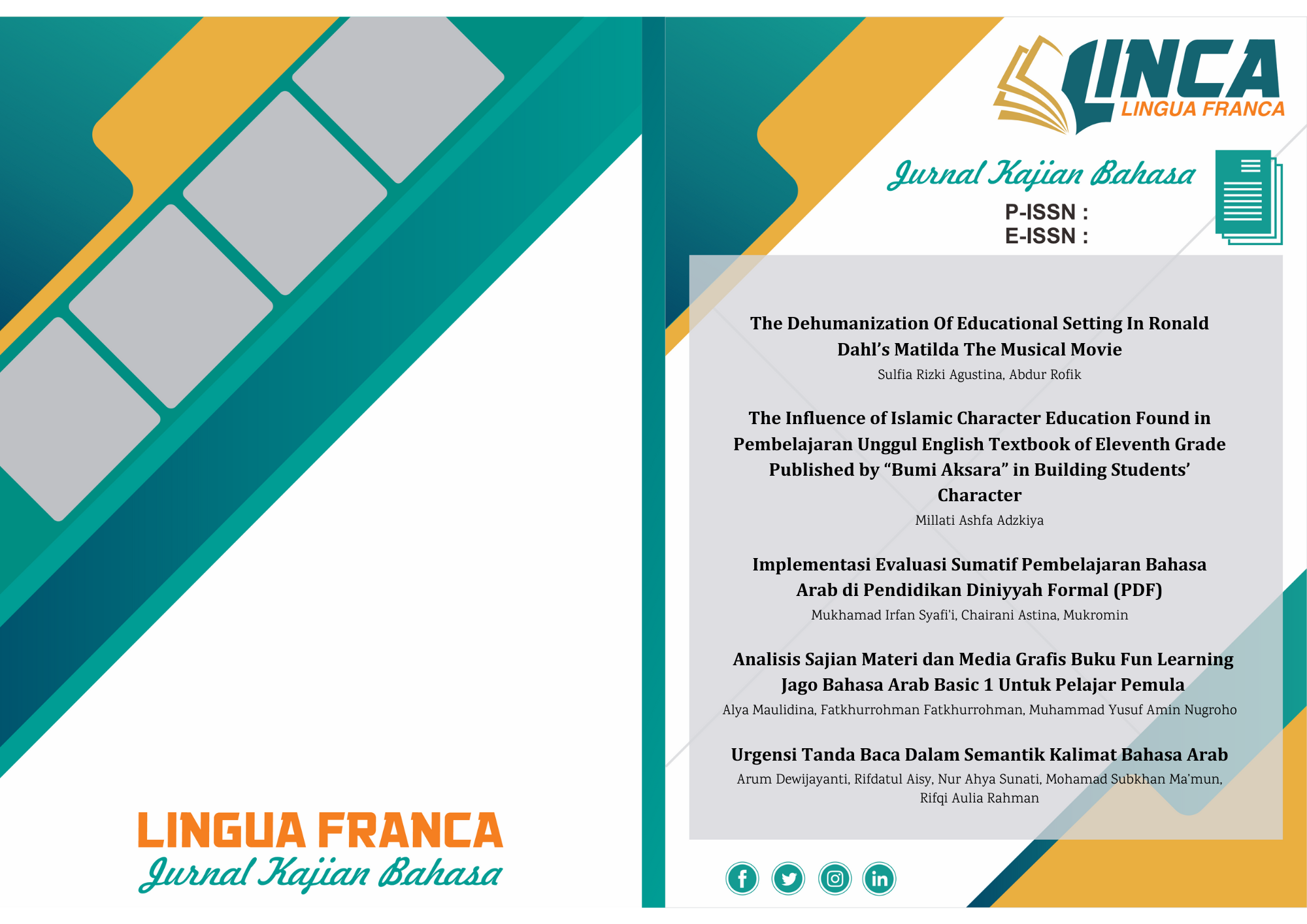The Effectiveness of Board Game Media on Problem-Solving Abilities in Passive Voice Learning
Keywords:
Board Game Media, problem-solving, present continuous, passive voice .Abstract
This study aims to determine the effectiveness of using board game media in improving students' problem-solving ability in passive voice material, especially in the present continuous tense, for grade 11 students at SMA An-Nida’ Selomerto Wonosobo. This study used a quantitative experimental design with a population of 59 11th-grade students. Two classes were selected as the object of research, Ramely XI IPS 1 class as the experimental class (27 students) and XI IPS 2 class as the control class (32 students). The results showed that board game media was effective in improving students' ability to solve problems on passive voice material, especially in the present continuous tense. This can be proven by using the pre-test and post-test for class XI IPS 1 and XI IPS 2. The results of the pre-test and post-test that have been done have increased significantly. In class XI IPS 1, the average value of the pre-test was 45.19 and the post-test was 93.33, while in the control class, the average value of the pre-test was 53.00 and the post-test was 66.00. Based on the results of the study, it can be concluded that board game media is effective in improving students' ability to solve problems in passive voice material, especially in the present continuous tense. This study shows that the use of board game media can improve students' ability to solve problems and improve their ability to learn passive voice. Therefore, board game media can be used as an effective medium in improving students' problem-solving skills in passive voice.
References
Fatimah, L. U., & Alfath, K. (2019). Analisis Kesukaran Soal, Daya Pembeda Dan Fungsi Distraktor. Al-Manar, 8(2), 37–64. https://doi.org/10.36668/jal.v8i2.115
Hulaikah, M., Degeng, I. N. S., Sulton, & Murwani, F. D. (2020). The effect of experiential learning and adversity quotient on problem solving ability. International Journal of Instruction, 13(1), 869–884. https://doi.org/10.29333/iji.2020.13156a
Jobirovna, J. A. (2023). «modern science аnd research». 430–433.
Khamngoen, S., & Srikoon, S. (2021). Research synthesis of STEM Education approach effected on students’ problem solving skills in Thailand. Journal of Physics: Conference Series, 1835(1). https://doi.org/10.1088/1742-6596/1835/1/012086
Munira, L. (2023). The Use Of Board Game in Teaching Passive Voice At Senior High School. https://repository.ar-raniry.ac.id/id/eprint/26050/%0Ahttps://repository.ar-raniry.ac.id/id/eprint/26050/1/Liza Munira%2C 170203113%2C FTK%2CPBI%2C082362658793.pdf
Nabila Zuhroh Terananda, Andi Mariono, & Fajar Arianto. (2020). Efektivitas Media Board Games Digital Pada Materi Degree of Comparison Untuk Meningkatkan Motivasi Belajar Bahasa Inggris Siswa SMP di Surabaya. Jurnal Teknologi Pendidikan, 5(2), 67–76.
Novaliendry, D., Darmi, R., Hendriyani, Y., Nor, M., & Azman, A. (2020). Smart Learning Media Based on Android Technology. International Journal of Innovation, Creativity and Change, 12(11), 715–735. www.ijicc.net
Novita, I. (2020). Pengembangan Bahan Ajar Menulis Teks Cerpen Berdasarkan Teknik Storyboard pada Siswa Kelas XI SMA. Diglosia: Jurnal Kajian Bahasa, Sastra, Dan Pengajarannya, 3(1), 46–52. https://doi.org/10.30872/diglosia.v3i1.29
O, R. V. (1957). Passive voice. Science, 125(3247), 529. https://doi.org/10.1126/science.125.3247.529
Ph.D. Ummul Aiman, S. P. D. K. A. S. H. M. A. Ciq. M. J. M. P., Suryadin Hasda, M. P. Z. F., M.Kes. Masita, M. P. I. N. T. S. K., & M.Pd. Meilida Eka Sari, M. P. M. K. N. A. (2022). Metodologi Penelitian Kuantitatif. In Yayasan Penerbit Muhammad Zaini.
Purwatiani, F. (2019). Developing Grammar Board game as A Media in Learning English Grammar. Journal of English Language Teaching Learning and Literature, 3(1), 38–47. https://journal.stkippgritrenggalek.ac.id/index.php/kid/article/view/163
Sahid, S. (2019). The Analysis of Parts of Speech Shift on the Indonesian Translation of Paulo. Metaphor, 1(1), 25–36. https://ojs.unsiq.ac.id/index.php/metaphor/article/view/635
Sakti, H. G., & Kartiani, B. S. (2023). Efektivitas Penggunaan Media Board Game Terhadap Peningkatan Hasil Belajar Siswa. Jurnal Visionary : Penelitian Dan Pengembangan Dibidang Administrasi Pendidikan, 11(1), 116. https://doi.org/10.33394/vis.v11i1.7791
Sari, H. M. (2023). An Error Analysis in Changing Active Voice into Passive Voice of Simple Past Tense at Twelfth Grade Students of SMAN 8 Mandau. JJEE: Jolly Journal of English Education, 1(2), 188–197.
Sinamo, H. (2019). an Error Analysis in Changing Active Voice Into Passive Voice of Simple Past Tense. Jounal IdeBahasa, 1(1), 31–40. http://jurnal.idebahasa.or.id/index.php/Idebahasa
Sugiyono, D. (2013). Metode Penelitian Kuantitatif, Kualitatif, dan Tindakan.
Sulistianingsih, E., Febriani, R., & Pradjarto, J. (2019). The Effect of Interactive Board Games (IBG) on Vocabulary Achievement. Langkawi: Journal of The Association for Arabic and English, 5(2), 127. https://doi.org/10.31332/lkw.v5i2.1458
Ubaidatur Rahmah Khodijah Al-Jawwadah, & Tiyas Saputri. (2021). the Effect of Board Game To Increase English Vocabulary Mastery: Systematic Review. Konstruktivisme : Jurnal Pendidikan Dan Pembelajaran, 13(1), 13–24. https://doi.org/10.35457/konstruk.v13i1.1082
Ulfa, U. (2011). Developing Students Ability in Using Simple Present Continuous Tense through CTL.


